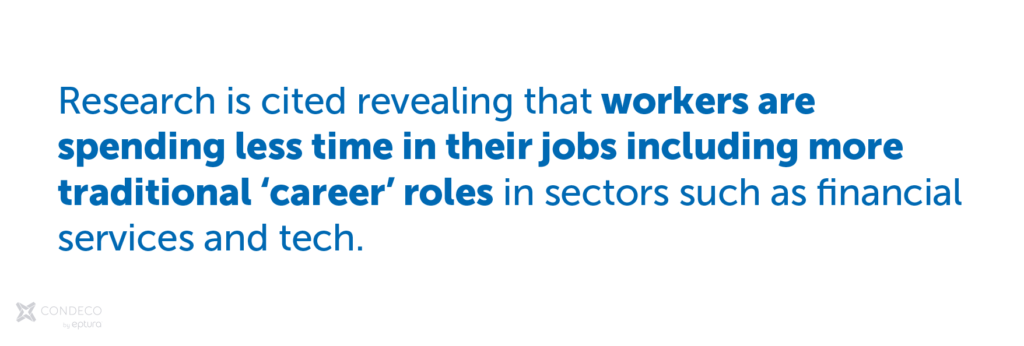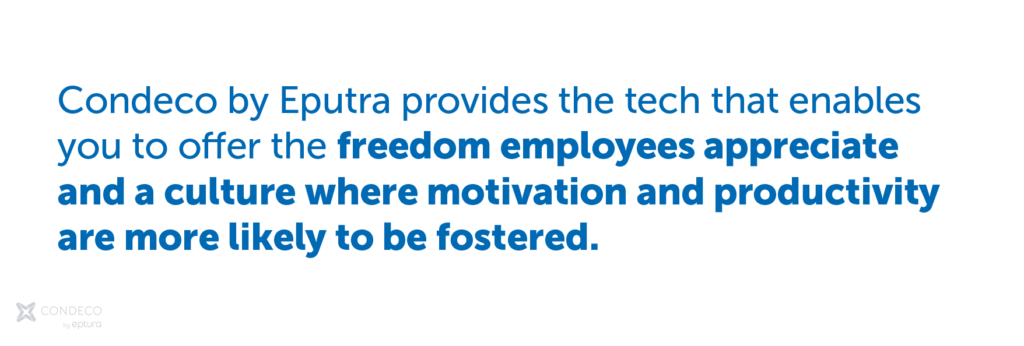
Has there really been a change in mindset amongst employees across the world? If studies are to be believed, changing circumstances around work have had an impact on what people value and the effects of the pandemic have led many to change their priorities away from their jobs. The result is the rise of both ‘quiet’ and ‘quick’ quitting.
Or is it? Let’s have a look at both these trends, what they are, whether they actually exist and, if so, what employers can do about it.
What is quiet quitting?

Quiet quitting is something you’ve probably read about recently. The claim is that it occurs when someone realizes that they really don’t care too much about their job. They stop going beyond what’s expected of them and do the bare minimum to pick up a paycheck at the end of each month. The result is lower productivity, less engagement with the business and the inevitable outcome of them leaving to find a job elsewhere that provides more satisfaction.
What is quick quitting?

Quick quitting is the result of a fairly buoyant labor market despite tough economic conditions. Many of us have experienced starting a job and realizing early on that it’s just not for us. Rather than sticking things out and seeing if they get better, it’s reported that more and more people are simply leaving straight away to seek something that will make them happier.
What’s the evidence for either of these?

If you read newspapers or scroll through LinkedIn, you would think that both quiet and quick quitting are fully-evidenced trends with worldwide impact. The actual reality is a little more fuzzy.
This report by Gallup claims that quiet quitting affects an astonishing 50% of the USA’s workforce.
However, there is a counterargument best summed up in this article in The Atlantic. Basically we have always had quiet quitters. Since the dawn of employment, many people have been unhappy in their roles and content to do as little as they can until something better comes along. Just because ‘quiet quitting’ is a buzz phrase on TikTok or in the newspapers, it doesn’t mean it’s an actual trend. Saying all this, it is still a live issue that employers need to deal with at a time when productivity matters more than ever as the key to success.

Quick quitting does seem to have a firmer basis in reality as highlighted by this Forbes story. Research is cited revealing that workers are spending less time in their jobs including more traditional ‘career’ roles in sectors such as financial services and tech. The drivers behind this include the need to manage the rising cost of living with a higher wage and the availability of jobs despite the imminent arrival of a recession. One crucial finding is that a toxic culture is also a major factor in many quitting their jobs early.
Once again, there may have been a rise in numbers, but is this really a major new trend? And will it die down when there are fewer job opportunities for disgruntled new starters? Quick quitting may be another case of old wine in new bottles.
What you can do about it

Quiet and quick quitting do exist – the main argument is about whether they have always existed or whether this is something new. While the debate rages on, we can be more certain about the things employers can do to mitigate the risks.
The key is creating a workplace culture that offers inspiration and fewer reasons to leave. Employees are increasingly motivated by work life balance when it comes to choosing or staying in a role. And a proven way of delivering this balance is through flexible work policies, underpinned by the right technology.
Smart employers are providing people with more choice over their hours and where they work. They are setting boundaries so colleagues don’t feel the need to work outside those hours and locations. They are building strong cultures by blending the best of home and office life and keeping everyone in contact through the latest communication software and apps.
Protect yourself against quitting

We’ve always believed that flexible working can support a better work life balance. Condeco by Eputra provides the tech that enables you to offer the freedom employees appreciate and a culture where motivation and productivity are more likely to be fostered. Whether you’re worried about quick, quiet or any type of quitting, talk to us about the solutions available that encourage retention at all levels.



